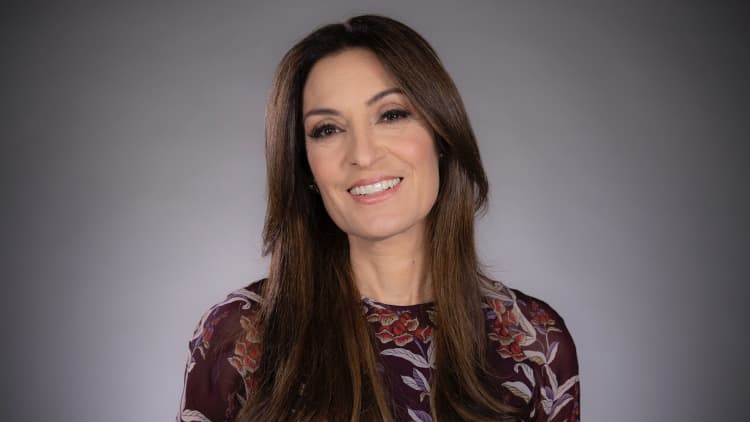There are a number of reasons why cold emailing is hard. Many people are uncomfortable talking about themselves, and it can feel awkward to ask for something from someone you have no deep relationship with.
As a result, most cold emails tend to fail. But they can be effective in propelling your career forward. I get cold emails all the time, and the common mistake people often make is sending a giant tome that reads like a long ramble or excessive bragging.
The recipient doesn't need to hear your entire life story to know what you want and how they can help. Whether you're expressing interest in a job opportunity or simply seeking mentorship, an effective cold email consists of three key paragraphs.
Below is an example of a perfect cold email, followed by a breakdown of what makes it so effective:
"Hi Betsy,
My name is Alison Parker. I'm a freelance writer covering science and psychology. I've written for several publications, including [X], [Y] and [Z publications]. I've been doing this work for about three years, and I'm really passionate about making people think critically about the world.
My former boss, [X boss' name], who you used to work with at [X company], mentioned you when I told her I was looking for a full-time position. She said your magazine is hiring a senior science reporter. I was pleasantly surprised to hear your name, as I've been reading your work for years! I especially enjoyed the cover story you wrote for [X name of publication] in 2016 about the psychology of consumer spending.
I submitted an application for the position online, but even if things don't work out, I'd be so grateful for a 30 minute call to learn about your experience and what advice you have for young professionals in this field. I'm free any time after 3 p.m. (ET) on Wednesday, Thursday and Friday this week.
(P.S. I saw your call on Twitter for volunteers to help at the food drive at [X location] this weekend. I organized a few of these in college and would love to help out, so count me in!)
Thanks so much for your time,
Alison"
Paragraph 1: The introduction
Your opening should give the other person a short feel of your story. Remember, you're the stranger, and they need to know who these words are coming from.
Paragraph 2: The connection
This section is all about validating yourself, and there are two core parts to it:
- Why do you matter? It's important to indicate how you're connected to the recipient. Knowing someone in common (e.g., a former friend or colleague) is the strongest form of social proof. But if you don't have a direct connection, find an unexpected commonality (e.g., you both share an unusual hobby or went to the same college).
- Can they trust you? Do your research. For example, don't ask someone for advice about how to succeed in an industry when they've already written tons of books about it. Showing that you're familiar with their work, in a genuine way, tells them you're sending this message specifically to them, and not just cold emailing a ton of random people.
Paragraph 3: The ask
Don't beat around the bush. The key is to be as specific and straightforward as possible, while also expressing appreciation.
If you're emailing someone who you've never met about a job opportunity, for example, asking "Can you direct me to the hiring manager?" right off the bat is a bad idea. They don't have a clear idea of your talents and experience, so why should they vouch for you?
The better approach is to offer suggestions (e.g., meeting for coffee or speaking on the phone) that will allow them to learn about your skills and qualifications.
Be considerate of their time, too. You don't want to come off as feeling entitled. Saying "If you're free to meet, let me know what days and times work best for you" is a terrible closing. It puts the responsibility on them to make a decision and sort out details for the both of you.
Want to go the extra mile? At the very end of your note, offer to do something for them. It doesn't have to be a big gesture. Showing what value you can bring to the table will set your email apart from all the others.
Rejection is your friend
Accept the fact that you won't always hear back. There are only so many factors within your control. Maybe you happened to send the email on a day that was incredibly busy for them. Or they might be on vacation and not checking emails.
Each rejection will get easier over time. The most important thing is to just begin. Start testing those waters, and as you modify your pitch, you'll learn a lot about what does and doesn't work.
Meredith Fineman is the founder and CEO of FinePoint, a professional development company that elevates individuals, from young professionals to CEOs. She is the author of "Brag Better: Master the Art of Fearless Self-Promotion."
Don't miss:

Check out: The best credit cards of 2020 could earn you over $1,000 in 5 years
*This is an adapted excerpt from "Brag Better: Master the Art of Fearless Self-Promotion," by Meredith Fineman, in agreement with Portfolio, an imprint of Penguin Publishing Group, a division of Penguin Random House LLC. Copyright © Meredith Fineman, 2020.


